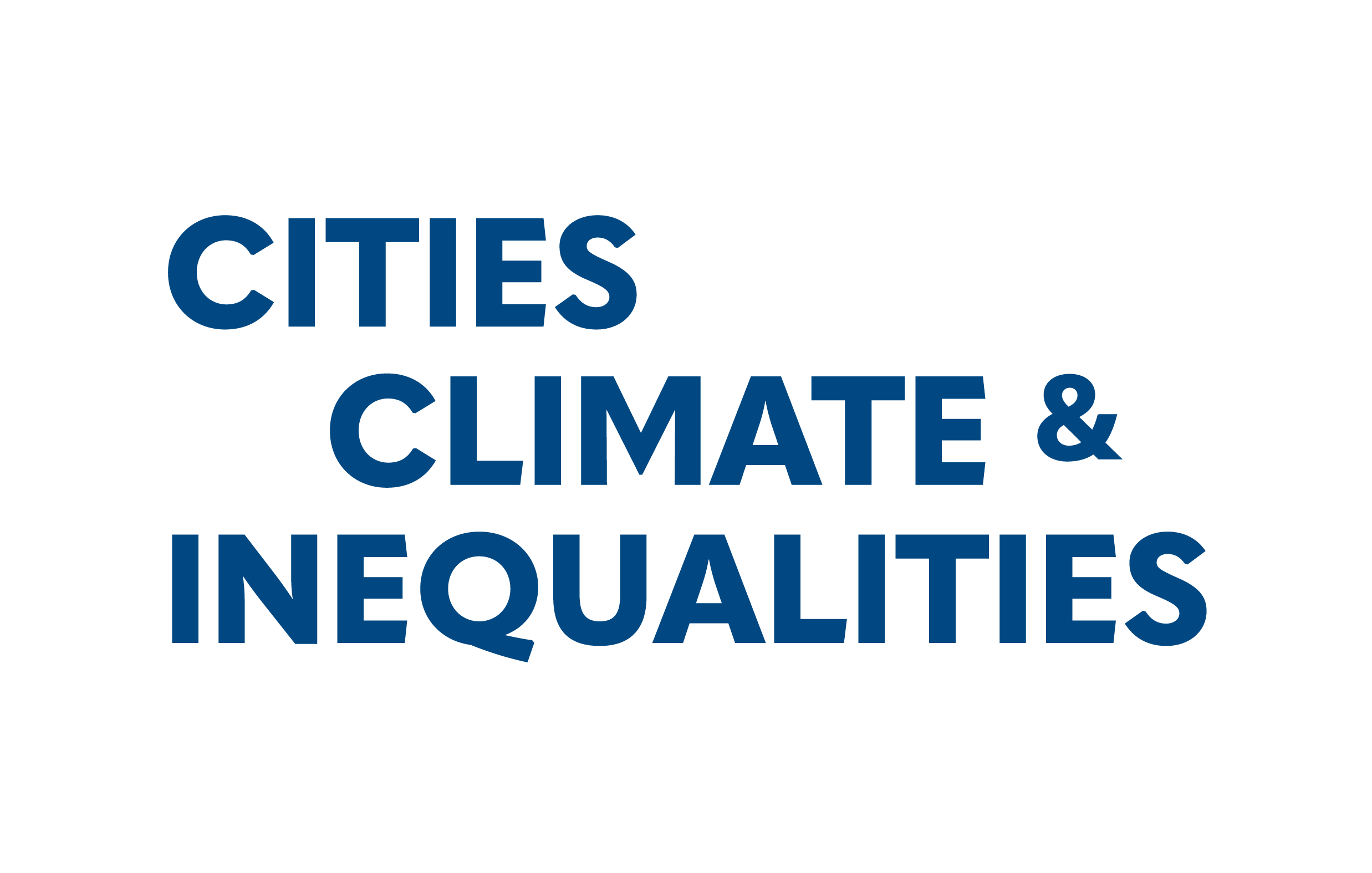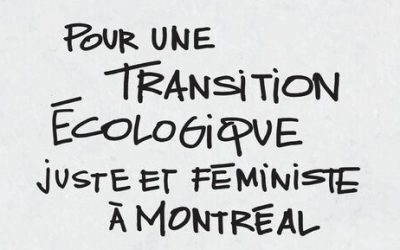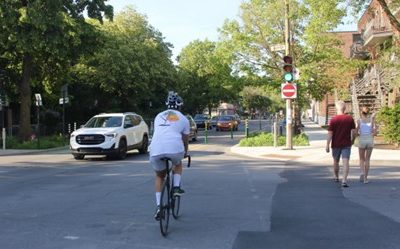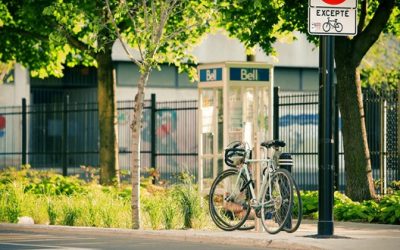
A collection of research summaries
This collection aims to bring together and make accessible existing knowledge on the relationship between inequalities, climate action and sustainability transition initiatives in cities and regions in Canada. In 2023, 15 syntheses of recent research in Quebec were published. In 2024, 26 new syntheses from recent research in British Columbia, Ontario and Quebec are published. The project is led by Hélène Madénian and Sophie L. Van Neste from INRS, and the team from the Canada Research Chair in Urban Climate Action, with a scientific committee composed of René Audet (UQAM), Geneviève Cloutier (Université Laval), Stéphane Guimont Marceau (INRS), Nathalie Bleau (Ouranos), Laura Tozer (University of Toronto) and Christina Hoicka (University of Victoria), in collaboration with Villes Régions Monde network and the participation of Alexandra Nadeau. To find out more…
The discourse of ecological transition in Greater Montreal
By Ali Romdhani and René Audet
Ecological transition is a recent form of environmental discourse, the successor to sustainable development in many institutions. Transition discourse was initially conceived on an urban scale: the Transition Towns movement popularized citizen initiatives and local action. Later, in Quebec, municipal institutions took up the issue, and planning documents proliferated.
Here’s an overview of the transition discourse in Greater Montreal.
For a just and feminist ecological transition in Montreal
By Naomie Léonard, Hélène Madénian and Gabrielle Perras St-Jean
As part of its fight against climate change, taking gender into account from an intersectional perspective would enable the City of Montreal to avoid certain pitfalls, such as reproducing sexist biases and stereotypes, and exacerbating inequalities between genders and between women themselves. This text is a summary of the research that led to the publication of the Avis du Conseil des Montréalaises pour une transition écologique juste et féministe à Montréal November 2, 2022.
The local community at the heart of the ecological transition: The impact of local, citizen-based climate initiatives in Montreal
By Alexandra Nadeau
In cities, a growing number of citizens are independently setting up initiatives to tackle climate change, such as greening, urban agriculture and alternative energy projects. Using the case study of Montreal’s Rosemont-La Petite-Patrie district, this research shows that local initiatives reflect the growing power of informal collective modes of action. Through local « green » actions, citizens produce direct, concrete and simple benefits, focused on their own personal gain.
The state of knowledge on inequality associated with climate change adaptation solutions
By Émily Després
Faced with the impacts of climate change, a number of actors are already actively implementing adaptation solutions. However, a number of recent studies tend to show that there is a risk that some of these solutions will lead to maladaptation and cause or exacerbate socio-economic inequalities. Studies of the impacts associated with these initiatives have received little attention. As a result, the negative impacts identified are rarely considered.
Climate change adaptation and urban experimentation in Montreal: Progress and blind spots
By Hélène Madénian, Sophie L. Van Neste, Geneviève Cloutier and Émilie Houde-Tremblay
Cities are multiplying initiatives to become resilient to climate change. However, the impacts of adaptation choices and priorities are not always explicitly discussed. As part of Labo Climat Montréal, a research project and living laboratory, documentation of current practices and workshops helped stimulate learning and understanding of adaptation priorities and constraints in the redevelopment of an urban area. The results show an emphasis and innovation on stormwater management, with less attention to social vulnerabilities to heat and the impacts of development on surrounding neighborhoods. As climate hazards affect the various populations in an area in different ways, concerted and strategic actions need to be developed.
Review of a research partnership in Rosemont‒La Petite-Patrie: The challenges of sub-municipal governance for the ecological transition
Production of a summary directory in collaboration with the Borough of Rosemont-La Petite-Patrie, in Montreal, to identify the areas and methods of intervention of the administration and its partners in terms of ecological transition. The Borough makes relatively little use of prescriptive standards and criteria, or of awareness-raising and incentives, even though these mechanisms have proven their effectiveness in triggering changes in behavior.
Climate change and social inequalities in health: The case of urban environments in Quebec
By Léa Ilardo
Social inequalities amplify the impacts of climate change on the health of certain urban populations in Quebec and Canada. This is demonstrated using the example of impacts linked to heat waves and air pollution, which primarily affect communities that are already vulnerable, either because they are already affected by other illnesses, or because they have a disadvantaged socio-economic status. This reality must be taken into account when developing measures to combat and adapt to climate change, so as not to widen the gap in social inequality.
The incremental trajectory of climate change adaptation in Quebec municipalities
By Eve Bourgeois
With the frequency and intensity of extreme weather events on the rise, more and more cities are implementing measures to adapt to climate change. This observation is consistent with the situation in Quebec, where six municipalities (Montreal, Quebec City, Laval, Longueuil, Sherbrooke and Saguenay) have adopted different climate change adaptation strategies. It appears that the approach favored by these municipalities is highly incremental.









